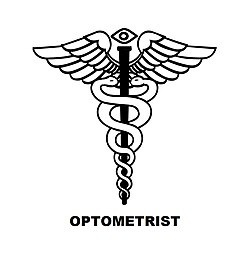A watch exam consists of not only checking to find out if you will need glasses. During a comprehensive eye exam, we not only determine your prescription for glasses or contact lenses, we assess your eyes’ capacity to work together as a team (binocular vision). The dilated part of the comprehensive eye exam allows us to check for eye diseases including glaucoma, cataract, and macular degeneration; helping us evaluate your eyes for signs of systemic disease such as diabetes, high blood pressure, even brain tumors. Adults and kids needs to have routine eye exams to maintain prescriptions current also to search for early signs and symptoms of eye diseases. Irvine Optometry can prevent vision loss.
Below is a listing of a few eye conditions and eye diseases that people try to find within a comprehensive eye exam:
Refractive error: This is your eyes’ “optical” prescription. You can find 3 forms of refractive error, myopia (nearsightedness), hyperopia (farsightedness), and astigmatism (irregular shape to a person’s eye which ends up in two separate things). These conditions could be corrected with glasses, contact lenses, and refractive surgery.
Presbyopia: This is actually the eyes inability to focus in close proximity. This happens as a result of aging. This disorder can be corrected with glasses, lenses, and refractive surgery.
Amblyopia: Amblyopia is poor growth and development of central vision because of a turned eye or perhaps a large asymmetry (difference) in refractive error forwards and backwards eyes. If untreated, amblyopia can slow visual progression of the affected eye, be responsible for permanent vision loss.

Strabismus: Strabismus is definitely an eye that turns inwards or outwards compared to one other eye. If not treated, a strabismus can lead to amblyopia, and reduce depth perception.
Glaucoma: Glaucoma is the degeneration of the optic nerve (a nerve tract that connects and transmits information in the eye towards the brain) often connected with high eye pressures. Within a comprehensive eye exam, we perform numerous tests that tell us whether you have glaucoma. Because there are without any symptoms, you should have regular eye exams to avoid permanent vision loss.
Macular degeneration: Macular Degeneration is really a ailment that affects the little “sweet spot” (macula) from the retina crucial for acute central vision tasks including reading, driving, and watching television. An extensive examination can detect the problem in its early stages.
Cataracts: A cataract is really a clouding from the crystalline lens which rests just behind the colored area of the eye. Once cataracts develop patients often feel as though they may be looking through a unclean window pane, which can cause the signs of glare through the night.
Systemic diseases: An extensive eye exam can detect early signs and symptoms of many systemic diseases including diabetes and high blood pressure level.
For more details about Concourse Optometry go to see our new net page.

